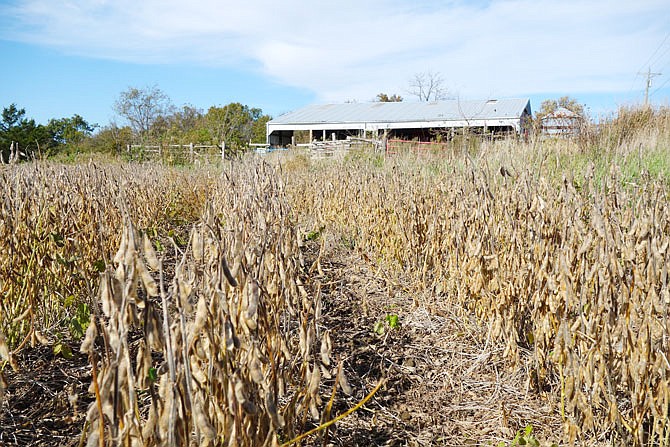Despite controversy, the U.S. Environmental Protection Agency is extending dicamba's registration for another two years.
"EPA understands that dicamba is a valuable pest control tool for America's farmers," EPA Acting Administrator Andrew Wheeler said. "By extending the registration for another two years with important new label updates that place additional restrictions on the product, we are providing certainty to all stakeholders for the upcoming growing season."
During the University of Missouri's annual Crop Management Conference at Columbia's Holiday Inn Executive Center, Dec. 18-19, presenters will offer information on dicamba research and label requirements. The agriculture industry-focused conference will also offer updates on how 2018's drought-to-downpour growing season affected crops, pests and disease, and provides insights on how trade affects agricultural commodity markets.
Register by Dec. 7 at plantsciencesweb.missouri.edu/cmc.
Dicamba is a broad-spectrum herbicide used as an agreement in a number of commercial weed killers, such as Monsanto's XtendiMax. It's frequently applied to soybean and cotton crops bred to resist dicamba, to control pests such as pigweed, which spreads quickly and is highly damaging to crops.
Throughout 2017 and 2018, farmers complained dicamba from neighboring fields drifted and damaged their crops. Certain factors, such as high temperatures and low humidity, increase dicamba's volatility (and thus likelihood to drift). Kevin Bradley, a researcher for the University of Missouri, estimated in July about 1.1 million acres of soybeans had been damaged by dicamba throughout the U.S. That includes 100,000 acres in Missouri alone.
In 2017, Arkansas banned the use of XtendiMax in the state, resulting in a legal battle with Monsanto.
Monsanto and other manufacturers have pinned the crop damage on user error during application.
The renewed registration also comes with label changes focused on reducing user errors, based on feedback from state regulators, researchers, manufacturers, farmers and EPA.
The changes include as a clarified training period for applicators, restricting over-the-top application (that is, application to growing plants) to certified applicators, enhanced tank clean-out instructions to prevent dicamba from contaminating future applications and other general improvements to label clarity and consistency.
Other label changes limit over-the-top applications on soybeans and cotton to two. Applications will be allowed only from one hour after sunrise to two hours before sunset, a restriction intended to prevent application during atmospheric pressure inversions, said agronomy professor Bob Hartzler, of Iowa State University.
Another major change is the restriction of over-the-top applications to within 45 days of planting for soybeans, and 60 for cotton, apparently to reduce application during summer heat. However, Hartzler said he sees little value to this new restriction, as soybeans are frequently planted well into May, allowing application to continue into July.
"In 2017, 90 percent of dicamba misuse complaints (in Iowa) were associated with applications made after June 15," he pointed out in a blog post.
To learn more about dicamba's renewed registration, visit bit.ly/EPAdicamba.
The registration for all dicamba products will automatically expire on December 20, 2020, unless EPA further extends it.

